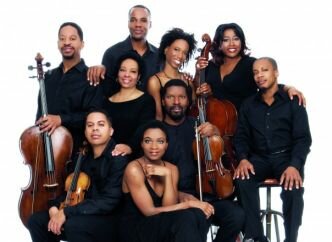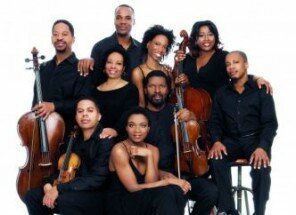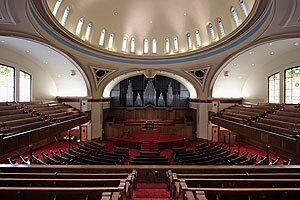On Saturday night, the Early Music Guild presented Canada’s Theatre of Early Music in a widely-anticipated, well-attended performance of Purcell’s Dido and Aeneas.. This was the second half of the program at Town Hall, the first being four solo arias by Handel, and three choral arias by Tallis and Purcell, all accompanied by a small orchestra of six strings and harpsichord.
From the start, this program did not live up to the hype. Perhaps TEM was having an off night, but several choices in the program seemed to be less felicitous than they might have been.
The four Handel arias, all gorgeous individually, came across as tame; at least one livelier piece would have brightened this section. “Total Eclipse” from Samson, sung by tenor Benjamin Butterfield, was an odd choice to begin with. It sounded uninspired and the orchestra sounded a bit ragged. Soprano Agnes Zsigovics and mezzo Meg Bragle could have sung out more in their arias from Theodora. The best of the four was “O Lovely Peace” from Judas Maccabeus with soprano Grace Davidson and contertenor, conductor, and leader of TEM Daniel Taylor.
As contrast, the choruses, Tallis’s “O Nata Lux,” and Purcell’s “Remember Not, O Lord,” and his marvelous chromatic “Hear My Prayer,” with its tonal clashes, had far more energy and showed what this group can do.
The 50-minute Dido and Aeneas was composed for a girl’s school: hence a preponderance of women’s roles. The music is straightforward but none the less beautiful for that. The performance, billed as semi-staged, hardly deserved that nomenclature. All the singers except Dido wore black; long gowns or pants and shirts, while Dido’s dress was shot silk, shimmering peacock colors. They stood or sat across the back in two rows and soloists walked slowly forward for their arias.
No props and minimal acting were included, the one exception being the Sailor, sung by Butterfield with a good lower-class accent and characterization. Taylor took the role of Sorceress and did the music justice with his superb countertenor voice, though neither he nor his two witches with their pretty voices expressed anything malicious or vengeful either vocally or dramatically.
Davidson as Dido’s friend Belinda came into her own with fine singing, a pleasure to hear, but Naomi Kiss as Dido sang with a disappointing frilly and uncontrolled vibrato which obscured the pitch, while her wooden acting hardly expressed passion, fury, or grief. The chorus was the bright spot, singing with vigor and expression. Tempi were good, words audible. (It was never explained why one short segment of the opera, the hunt kill and the storm–a great musical moment for orchestra and chorus–was inexplicably omitted.)
All in all, this could as easily have been a concert program achieved here with local musical forces, just as well sung, and with considerably more dramatic effect.





